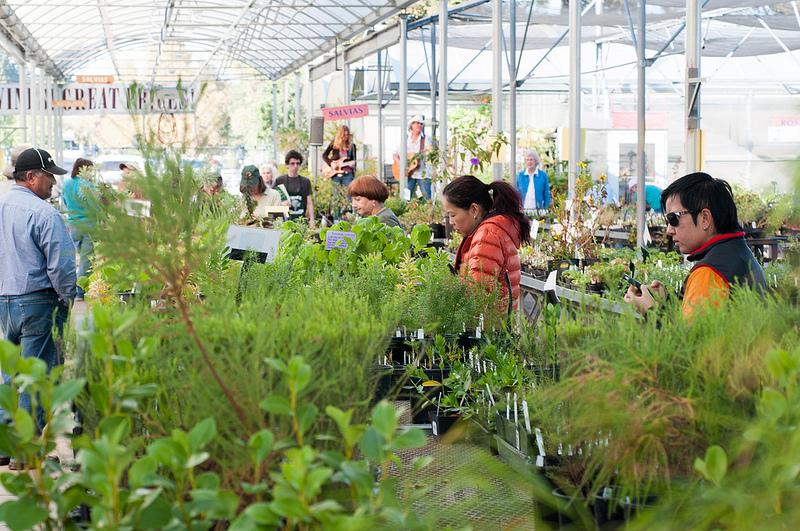One of DVC’s best kept secrets is the horticulture department, hidden away near the very edge of the campus near the sports
facilities.
Although frequently overlooked by students and faculty throughout
the year, it becomes the center of attention during its plant sales, which occur
twice each semester.
The most recent sale held on Nov. 1 and 2 was the last of four plant sales held by the department this year. The sale kicked off with a fantastic start with a sizable crowd flooding in as soon as the gates opened at 2 p.m. Customers were loading small shopping carts full of seedlings while others perused the incredible diversity across the dozens of rows of plants including sativas, herbs, roses, vegetables, succulents and fruit saplings just to name a few.
Donna Wilkinson, a long time native of Contra Costa County noted, “It’s a great place to buy. Everything is in good condition [and] you get a good value.”
A blue grass duo also performed at the sale keeping the atmosphere warm and lively as shoppers searched for the right plant for their gardens.
Their clientele ranged from students to locals and veteran green thumbs to first time growers. Some only wanted to start a home herb garden while others had ambitious landscaping projects in mind. The sale was also a great way for gardeners of all skills to learn from the passionate faculty who offered his expertise on citrus trees to customers.
Prices were dirt cheap with almost all plants costing under $5 while many of the smaller ones were only $1, allowing anyone to kick start their gardens on a tight budget. The biggest sellers this year were winter vegetables.
According to the department’s head Mike Lang-Moreland, these sales are vital in keeping the department functioning.
The DVC horticulture department sets itself apart from the rest of the college by being almost completely self-sufficient. The department uses their plant sales as well as volunteer help from students to pay for facility costs. All of the water, soil, fertilizer, seeds, saplings and most importantly, the labor, comes from private donations or proceeds from these sales. Students also contribute significantly to the department by overseeing the plants and maintaining the facilities.
Lang-Moreland proudly remarked: “Everything is paid for by the plant sale. Nothing but the air conditioning comes from the school.”
Self-sufficiency has become a defining characteristic of the horticulture department. which also includes and extensive growing operation and green house complex to educate students on botany. Because of frequent budget cuts from the state and the school, the department has come to rely on these sales to meet their budget.
The department’s faculty is already preparing for their next sale in the spring.
“We are on-going growing. [We are] thinking about what we will are planting for spring,” Lang-Moreland said.






































































